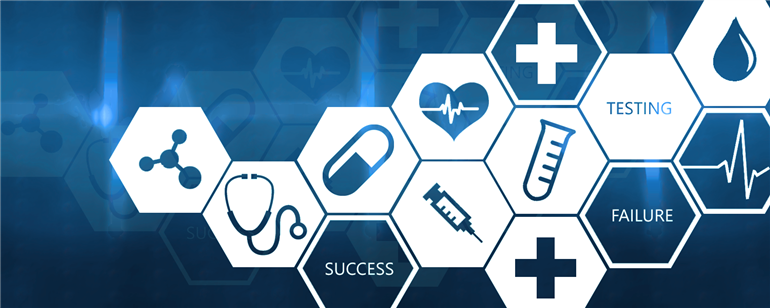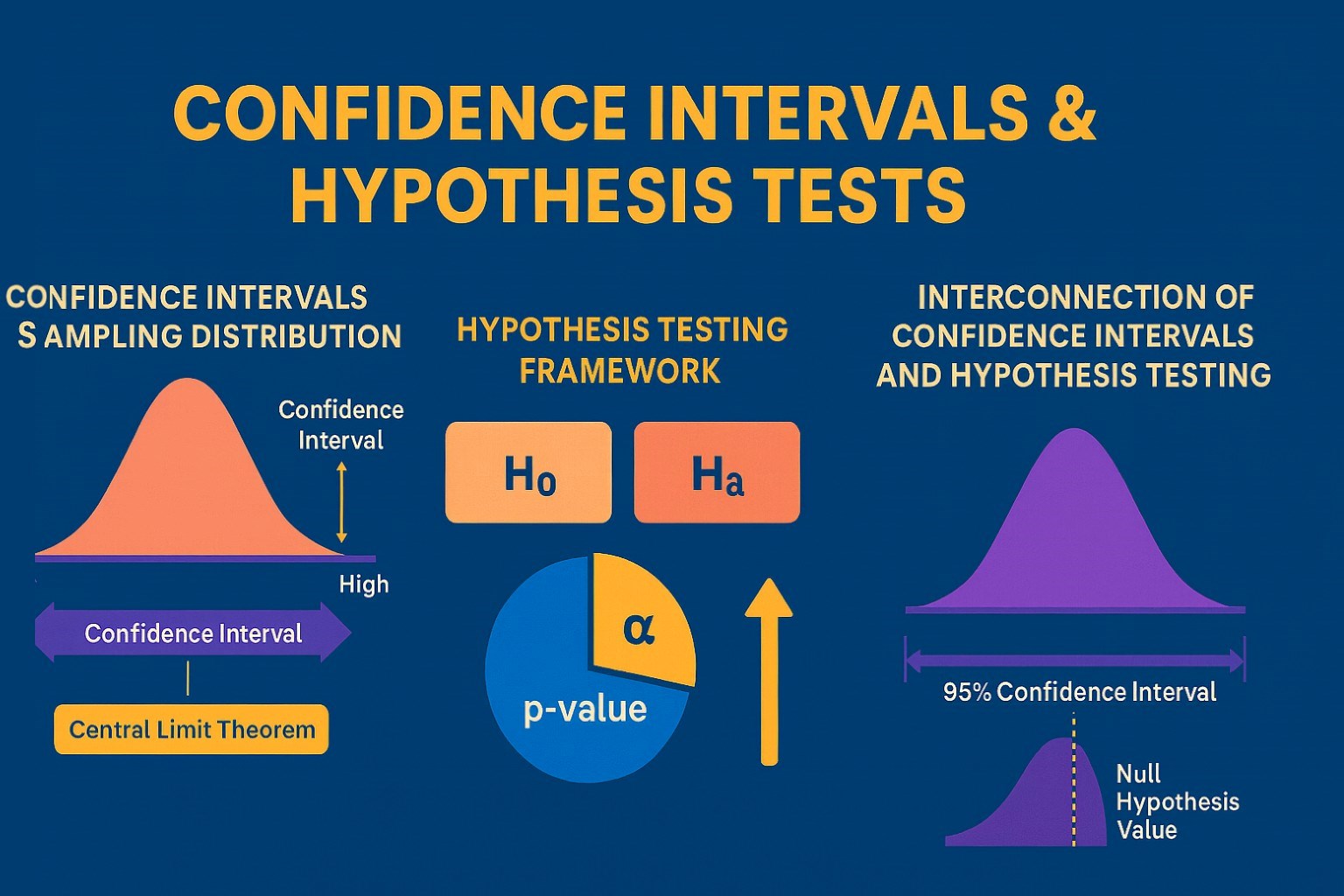Healthcare Business Analyst Job Description and Salary

Healthcare Business Analysts are critical in helping healthcare organizations improve operations, enhance patient care, and achieve business objectives. So, to manage various tasks, they should possess crucial business operation management and data analysis skills.
A healthcare business analyst analyzes and evaluates the business operations within healthcare organizations. Their primary responsibilities include interpreting patient outcomes, financial performance, and operational efficiency data, identifying improvement areas, and developing strategies to optimize processes and workflows. Additionally, they collaborate with healthcare professionals, administrators, and IT staff to implement new technologies and systems, conduct market research and competitive analysis, ensure compliance with regulatory requirements, and support strategic planning, budgeting, and financial forecasting.
Key responsibilities of a healthcare business analyst may include
Analyzing and interpreting healthcare data to identify trends and opportunities for improvement
Collaborating with healthcare professionals, administrators, and IT staff to implement new technologies and systems
Conducting market research and competitive analysis to identify opportunities for growth and expansion
Developing and maintaining business requirements and functional specifications for new healthcare IT systems
Ensuring compliance with regulatory requirements and industry standards
Providing support for strategic planning, budgeting, and financial forecasting
Evaluating the impact of healthcare policies and regulations on business operations
Communicating and presenting findings to stakeholders and decision-makers within the organization
In addition to business processes, healthcare business analysts may review an organization’s current practices for managing patients’ electronic health records (EHRs).
What do Healthcare Business Analysts do?
Healthcare business analyst roles and responsibilities vary from one healthcare organization to another based on the requirements. But we shall discuss a few crucial and common responsibilities.
A business analyst must organize, gather, and evaluate relevant information, including financial statements, EHR system specifications, and vendor contracts.
Must communicate with internal and external stakeholders.
The business analysts must arrange meetings to understand practices and evaluate necessary business improvements.
Responsible for analyzing the company's revenue, profit, and loss.
Take necessary steps to avoid high-rolling and enhance business processes.
Creating backup plans and strategies for potential execution, such as selecting a different EHR supplier or suggesting technological advancements to support system compatibility.
Review the status of any recommended and implemented modifications regularly to ensure they are still on track, and repeat the preceding procedures as needed to guarantee ongoing improvement.
Assisted in managing software development and provided project management support during different stages, including the research, testing, and implementation of new systems and products. Technical responsibilities include developing business requirements documentation, user training manuals and guides, and requirements traceability matrices.
Overall, the responsibility of healthcare business analysts cannot be compiled within the list because they play crucial roles in all aspects of business development. Moreover, they must possess strong communication and technical skills.
Healthcare business analysts should have a profound understanding of tools like Microsoft Excel and SharePoint, SQL, R, Apache Hive, Hadoop, data visualization and dashboard solutions, and software development practices like agile and waterfall.
What is Health Informatics?
Health Informatics is the field that focuses on the acquisition, storage, retrieval, and use of health information to support healthcare delivery, management, and decision-making. It involves the application of information technology and data science to organize and analyze health data, improving the efficiency and effectiveness of healthcare services. Health informatics encompasses electronic health records, health information exchange, clinical decision support systems, and other technologies aimed at enhancing healthcare outcomes.
Some of the specific tasks they may conduct include:
Data Analysis: Analyzing and interpreting healthcare data to derive meaningful insights, trends, and patterns that can inform decision-making and improve patient care outcomes.
System Implementation: Collaborating with IT teams and healthcare professionals to implement and optimize electronic health record (EHR) systems, clinical information systems, or healthcare analytics platforms.
Workflow Optimization: Identifying opportunities to streamline and improve clinical workflows using technology and data-driven insights to enhance operational efficiency and patient care delivery.
Informatics Solution Development: Contributing to the development and customization of informatics solutions, such as clinical decision support tools, population health management systems, or patient engagement platforms.
Data Governance and Compliance: Ensuring that healthcare data is managed, stored, and utilized in compliance with regulatory requirements and industry standards, such as HIPAA regulations and data security best practices.
Performance Measurement and Reporting: Developing and maintaining performance metrics, dashboards, and reports to track and communicate key performance indicators related to patient outcomes, quality measures, and operational efficiency.
Informatics Training and Support: Providing training and support to healthcare staff on using informatics tools and systems to ensure effective technology adoption and utilization within clinical and administrative settings.
Informatics Strategy and Planning: Contributing to developing informatics strategies and roadmaps that align with organizational goals, regulatory requirements, and industry trends to drive digital transformation and innovation in healthcare.
Interoperability and Integration: Facilitating the seamless healthcare data exchange between different systems and stakeholders to support coordinated care, population health management, and data-driven decision-making.
How to Become a Healthcare Business Analyst?
To become a healthcare business analyst, you typically need a combination of education, experience, and skills. Here are the general steps you can take to pursue a career as a healthcare business analyst:
1. Obtain a bachelor's degree: A bachelor's degree in a related field, such as healthcare administration, business administration, computer science, or information technology, can provide a strong foundation for a career in healthcare business analysis.
2. Gain relevant work experience: Many healthcare business analyst positions require several years of relevant work experience in healthcare, business analysis, or a related field. Consider starting with entry-level positions in healthcare administration, data analysis, or IT to gain relevant experience.
3. Develop technical and analytical skills: Healthcare business analysts must have strong technical skills in data analysis, database management, and IT systems. They must also have strong analytical skills to interpret complex data and identify trends and opportunities for improvement.
4. Obtain industry certifications: Certified Business Analysis Professional (CBAP) or Certified Healthcare Business Consultant (CHBC) or Business Analyst Healthcare Domain Training and certification can demonstrate your knowledge and expertise in healthcare business analysis.
5. Stay current with industry trends: Healthcare is constantly evolving, and healthcare business analysts must stay up to date with the latest trends, technologies, and regulations.
By following these steps, you can build the skills, knowledge, and experience needed to pursue a career as a healthcare business analyst.
How Much Does a Healthcare Business Analyst Make?
Healthcare business analysts are classified as management analysts by the U.S. Bureau of Labor Statistics (BLS).
The median annual salary for this profession was $85,260 as of 2019. 866,300 management analysts were working in 2018; this number is projected to rise significantly between 2018 and 2028. Management analysts are expected to grow 13% between 2018 and 2028, substantially faster than the 6% average growth rate for all occupations.
The Glassdoor estimated total pay for a Healthcare Business Analyst in the United States is $89,009 per year, with an average salary of $83,802 per year. The estimated additional pay is $5,207 per year. The "Most Likely Range" represents values that exist within the 25th and 75th percentile of all pay data available for this role—these data are taken from Glassdoor.
In conclusion, a Healthcare Business Analyst plays a pivotal role in optimizing healthcare processes and technology to ensure the delivery of high-quality patient care. Their responsibilities encompass requirements gathering, data analysis, system implementation, and process improvement. The salary for this role reflects the critical nature of their work, with variations based on individual qualifications and the demands of the healthcare industry. As the healthcare landscape continues to evolve, the role of Healthcare Business Analysts becomes increasingly vital in driving positive change and innovation within healthcare organizations.
Find a course provider to learn BA Healthcare Domain
Java training | J2EE training | J2EE Jboss training | Apache JMeter trainingTake the next step towards your professional goals in BA Healthcare Domain
Don't hesitate to talk with our course advisor right now
Receive a call
Contact NowMake a call
+1-732-338-7323Take our FREE Skill Assessment Test to discover your strengths and earn a certificate upon completion.
Enroll for the next batch
Business Analyst Healthcare Domain Training
- Dec 11 2025
- Online
Business Analyst Healthcare Domain Training
- Dec 12 2025
- Online
Related blogs on BA Healthcare Domain to learn more

Why Healthcare Business Analysts are in greater need?
If you're looking for an IT profession that is beyond being purely technical and related to healthcare, then healthcare Business Analyst job roles are perfect ones. Witnessing the drastic scope of IT industry, Healthcare BA career contains several ad

BA Healthcare domain |Gaining entry and establishing presence |How to get it done?
Business analysts are professionals who facilitate businesses to carry on their business smoothly without any operational hiccups. Business Analysts are in heavy demand across all industries; including manufacturing and services. Business Analysts wi

For Healthcare Business Analysts, its’ patient, patient, patient
Expensive health plans, utmost priority to advanced healthcare treatments and approaches are amongst the masses and this is what making the healthcare industries around the world to go shiner and brighter.

Top 5 skills needed by Healthcare Business Analysts
Business Analysts in Healthcare domain had started gaining significant attention in the business analysis industry. Thus, the healthcare industries witness rapid increase in the number of Healthcare BAs across the world. Here, in this blog, let us ex

A perfect starting point to Healthcare Business Analysts
Business Analysts is a challenging career which often demands them to migrate from one domain to another depending on their current projects.

BA Healthcare Domain- A Promising Career Choice
Choosing to pursue a career in Healthcare domain as a Business Analyst, you could as a business analyst make a valuable impact on people’s lives. It may sound impossible, but Business Analysts work hand-in-hand with Healthcare professionals to achiev

How To Become A Successful Healthcare Business Analysts
The requirement for business analysts in various sectors is increasing by the day, and healthcare is no different. The need for business analysts in BA Healthcare Domain stems from several reasons. Evaluation of services of medical facilities Eva
Latest blogs on technology to explore

From Student to AI Pro: What Does Prompt Engineering Entail and How Do You Start?
Explore the growing field of prompt engineering, a vital skill for AI enthusiasts. Learn how to craft optimized prompts for tools like ChatGPT and Gemini, and discover the career opportunities and skills needed to succeed in this fast-evolving indust

How Security Classification Guides Strengthen Data Protection in Modern Cybersecurity
A Security Classification Guide (SCG) defines data protection standards, ensuring sensitive information is handled securely across all levels. By outlining confidentiality, access controls, and declassification procedures, SCGs strengthen cybersecuri

Artificial Intelligence – A Growing Field of Study for Modern Learners
Artificial Intelligence is becoming a top study choice due to high job demand and future scope. This blog explains key subjects, career opportunities, and a simple AI study roadmap to help beginners start learning and build a strong career in the AI

Java in 2026: Why This ‘Old’ Language Is Still Your Golden Ticket to a Tech Career (And Where to Learn It!
Think Java is old news? Think again! 90% of Fortune 500 companies (yes, including Google, Amazon, and Netflix) run on Java (Oracle, 2025). From Android apps to banking systems, Java is the backbone of tech—and Sulekha IT Services is your fast track t

From Student to AI Pro: What Does Prompt Engineering Entail and How Do You Start?
Learn what prompt engineering is, why it matters, and how students and professionals can start mastering AI tools like ChatGPT, Gemini, and Copilot.

Cyber Security in 2025: The Golden Ticket to a Future-Proof Career
Cyber security jobs are growing 35% faster than any other tech field (U.S. Bureau of Labor Statistics, 2024)—and the average salary is $100,000+ per year! In a world where data breaches cost businesses $4.45 million on average (IBM, 2024), cyber secu

SAP SD in 2025: Your Ticket to a High-Flying IT Career
In the fast-paced world of IT and enterprise software, SAP SD (Sales and Distribution) is the secret sauce that keeps businesses running smoothly. Whether it’s managing customer orders, pricing, shipping, or billing, SAP SD is the backbone of sales o

SAP FICO in 2025: Salary, Jobs & How to Get Certified
AP FICO professionals earn $90,000–$130,000/year in the USA and Canada—and demand is skyrocketing! If you’re eyeing a future-proof IT career, SAP FICO (Financial Accounting & Controlling) is your golden ticket. But where do you start? Sulekha IT Serv

Train Like an AI Engineer: The Smartest Career Move You’ll Make This Year!
Why AI Engineering Is the Hottest Skillset Right Now From self-driving cars to chatbots that sound eerily human, Artificial Intelligence is no longer science fiction — it’s the backbone of modern tech. And guess what? Companies across the USA and Can

Confidence Intervals & Hypothesis Tests: The Data Science Path to Generalization
Learn how confidence intervals and hypothesis tests turn sample data into reliable population insights in data science. Understand CLT, p-values, and significance to generalize results, quantify uncertainty, and make evidence-based decisions.